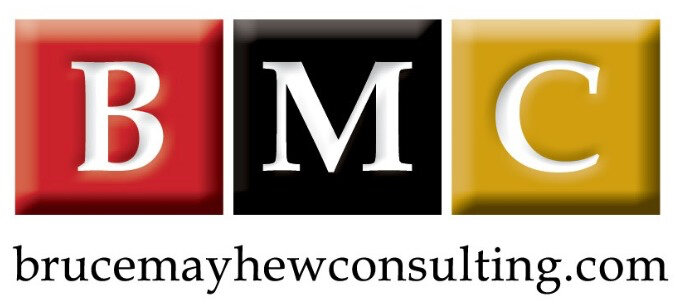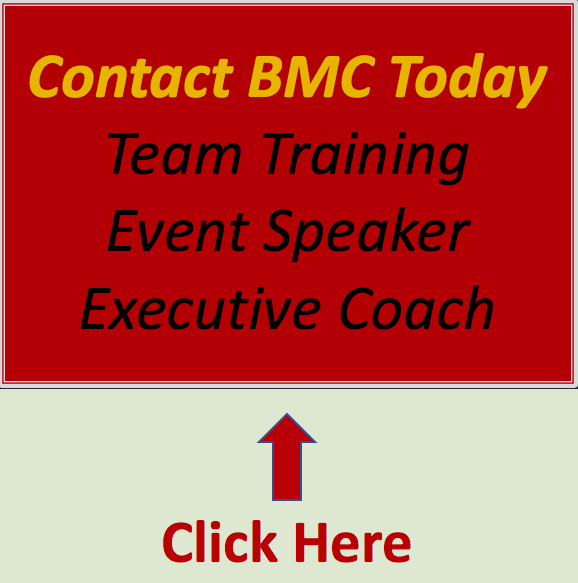Millennials Are Today’s Leaders. What Is In Our Future?
/Not too long ago whenever I delivered a Generational Differences training workshop, I shared a slide that read, “Millennials Are Our Future Leaders.” But times have changed and now that slide reads “Millennials Are Today’s Leaders.”
This ongoing generational shift at our leadership levels and in the C-Suite which in large part ensures the company stays focused on its vision, mission, values, and policies is what I want to talk with you about. I’d also like to discuss what Millennials (and some Gen Z’s) are doing differently as leaders and how we can all support – and benefit from this important – monumental change.
Times Have Changed / Are Changing
Throughout my career I’ve thoroughly enjoyed working with Millennials and now Gen Z’s. I’ve found their positive attitude, creativity, willingness to pitch in and desire to share unique ideas and perspectives refreshing. Additionally, I’ve also felt many of them were getting a bad rap by their Boomer and Gen X bosses who thought they were entitled and lazy. And sure, some Millennials are entitled and lazy, but I know some Boomers and Gen Xers who also fit that bill.
There are a few other things I’ve found is often true about Millennials. They don’t want to be bored and they want to have an opportunity to share their opinion – to contribute. They are often uncomfortable / unwilling to sit around for two years doing the same routine work to “pay their dues.” What is the source of all this impatience? For most Millennials, their Boomer parents (isn’t that ironic), taught them as children to ask “Why?” if they were curious. This is also true for the Gen Z employees that are following in the Millennials footsteps. Boomer parents also often encouraged their children to go after their dreams if they wanted something and to not listen to people who might tell them they don’t deserve it.
But all that is history, right? What is the impact Millennials are having now that they are moving into leadership roles? This is a great question.
Because Millennials are today’s leaders, they are having an important influence on corporate cultures. Millennials often bring a fresh, more casual perspective to our workspaces. And perhaps more lately than I’ve ever seen, Millennials feel comfortable with flat organizational structures. But don’t let their casual exterior fool you – they are very focused on being productive, successful, and proud of their work. A Deloitte study found that 62 percent of Millennials say work is part of their identity. And because Millennials are community driven, most of them (there are always exceptions) are very comfortable sharing that pride and success with their team.
If Millennials have shortcomings (don’t we all), one of their big ones is that they often need to unlearn many of the leadership skills they saw (and learned by accident), as they were growing up. Yes, even though they resist that style of leadership, there are learned biases they must unlearn like hierarchy, silos, the need to try to control, and the need to try to know everything. But with the support of mentors, coaches, and teachers / trainers, they are learning how to be leaders who are focused on traditional leadership qualities like results and accountability while also learning it’s OK to embrace softer-skills and encourage people… including themselves… to be their whole, unique, vulnerable, compassionate, forgiving, learning, evolving selves at work. Hurray!
Let’s get back to how Millennials (and Gen Z) are changing leadership. To do that lets look at some of the baseline / general profile characteristics that have always been part of the Millennial profile and are still there. For example, they want to:
Feel their unique experience and abilities have value – are respected.
Feel their unique experience and abilities have impact – make a difference.
Contribute to a conversation.
Feel safe – respect each other’s individuality.
Collaborate, be mentored, mentor others, and still have opportunities for autonomy.
Be recognized for their contribution.
Learn new skills – embrace continuous learning (a Growth Mindset).
Enjoy work-life balance… which now includes some work-remote opportunities.
Be friends / friendly with the people they work with (enjoy approachability).
I really respect this list. These characteristics all lead to a wonderful mix I’ve seen in action. I’ve noticed first-hand that in team meetings decisions are more thoughtful and impactful and buy-in / follow-through is so much better when everyone has an opportunity to share their ideas and perspectives. And this also has a big impact on building long-term trust for both the individuals and team.
What Is In Our Future?
Workplace evolution (change) is only going to speed up and this includes options on how we all work and communicate. Workplace acceleration is going to continue to shine a very bright spotlight on the importance of excellent communication… for everyone. As work continues to speed up, timing and accuracy will become even more critical, especially as more and more of us work in a remote or hybrid environment (and hybrid is not going away). We are going to have to intentionally, mindfully take some opportunities to slow down. And when we slow down we are going to have to be thinking about:
Why we communicate. Pausing for a moment to fully grasp what our goal is and what needs to happen to move our goal forward should be an easy first step. But, it’s amazing how many times we write an email (for example) and as soon as we hit send we notice we have something more to say or something else we need.
How and when we communicate. We now have many options on how we communicate – everything from the old-fashioned ways of being in-person or using the telephone, to using countless software apps to message, video call, email or update a shared file. These choices are a challenge because not only are there many ways to share information or get updates… even in the same company, but ideally, we should all be using these ever-changing tools in the same way, store information in the same way and adopt the seemingly never-ending upgrades and new functions in the same way.
Getting back to something I mentioned early in this article, Millennials (and Gen Z) want to feel like they are being heard, having input, making a difference, and being recognized. In short, they want to be acknowledged. And really, don’t we all? I have yet to meet a Boomer or Gen Xer who doesn’t want the opportunity to share a good idea they have or be recognized for a job well-done.
I know successful Millennial leaders who’ve figured this team culture thing out for themselves. They know their actions are more important than what they say. So, not only do they share the importance of community, responsibility, and values (for example), they demonstrate these qualities every chance they have. They talk about community, responsibility, and values when they are sending group communication to their team, they share community, responsibility, and values in meetings, and they demonstrate them when one employee is going through a difficult personal time and may need a few days off. But these Millennials also demonstrate hard work, taking charge and being responsible. They encourage everyone to do their best, give their teams opportunities to shine, and give them recognition when they do great work and work as a team – especially when they work to break down silos.
The successful Millennial leaders have also figured out that when there is a quiet person in the meeting, that this is their time to shine as a leader and to gently engage the quiet person by perhaps going around the table (or screen) and asking everyone a final open-ended question. For example, ask:
What do they see as the greatest opportunity?
What they see is the most important milestone / requirement for the project or the team to succeed?
What are they most excited about in relation to the overall project, or perhaps how the team is working together?
How do they see the project – or a decision that was made – meet the strategic goals or the values of the team / company?
The difference for Millennials and Gen Z from many of their Gen X senior coworkers and any Boomers is that if Millennials and Gen Z’s don’t feel they are part of a shared, supportive corporate culture – or able to build one – they are likely already looking for that culture somewhere else.
In closing, let’s not forget that we humble humans are social animals… well most of us are. If your work requires any sort of teamwork / collaboration, creativity, problem (or opportunity) solving, learning or development, take every opportunity to be face-to-face with the people you work with. If you are not in the same city and/or your hybrid workspace means frequent video calls, turn your camera on – let people see you. Seeing someone nod their head in agreement with you even when you are sharing an idea in a virtual meeting can do wonders to building trust.
If you are a leader – or hope to be a leader in the future, my recommendation is to start right now to find ways to build trustworthy relationships with the people around you – from family to friends to co-workers.
Conclusion
As I end this article, I want to give a shout-out to our wonderful Gen X leaders and coworkers. I will gladly say Gen Xers have been among the heroes in our workspaces for the last 20-years. They’ve had to put up with a lot. First, they were promised that when Boomers retired at 55-years old (does anyone remember the commercials for Freedom 55?) and that they would have their pick of exceptional opportunities. Then, a few recessions, market downturns and global instability arrived and Boomers kept working longer than anticipated.
I believe that Generation Xers have quietly been holding things together. Sandwiched between Boomers and Millennials, Generation Xers are able to bridge the gap. And Generation Xers whole existence as adults in the workforce has been one of constant change.
Thank you for spending time with me today and reading ‘Millennials Are Today’s Leaders. What Is In Our Future?’.
Bruce
Learn More About Bruce Mayhew
Toronto corporate trainer and executive coach Bruce Mayhew Consulting is in the people business… it just so happens that training and/or executive coaching is involved. Let us help you improve your productivity and employee engagement.
To learn more about how leadership training can to improve your skills call us at 416.617.0462.
Bruce Mayhew Consulting's most popular programs are Email Etiquette Training, Difficult Conversations, Generational Differences, Leadership Skills Training and Time Management Training
Related Workshops That Drive Business Success
Toronto based corporate trainer and executive coach Bruce Mayhew Consulting proudly offers leadership training and professional development.



